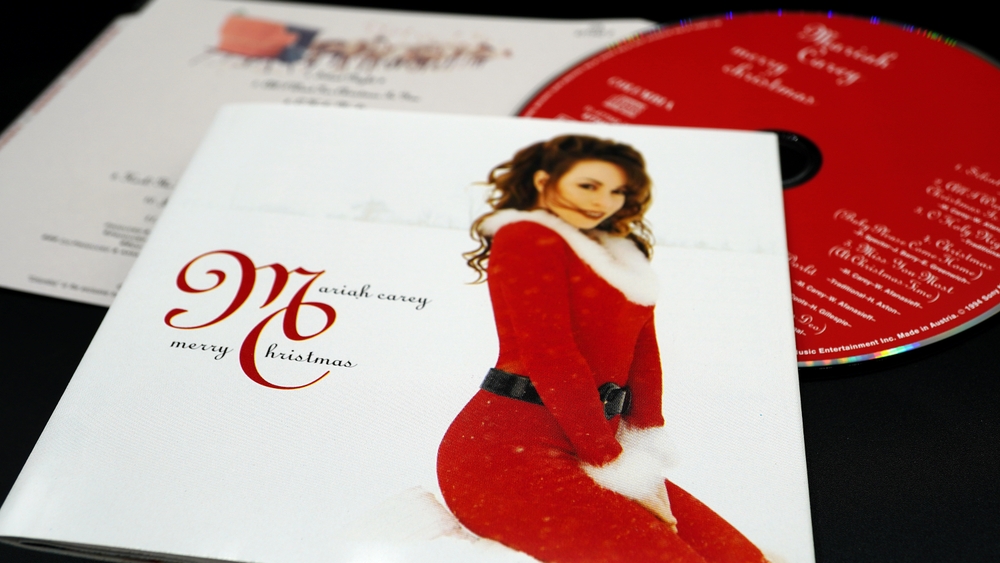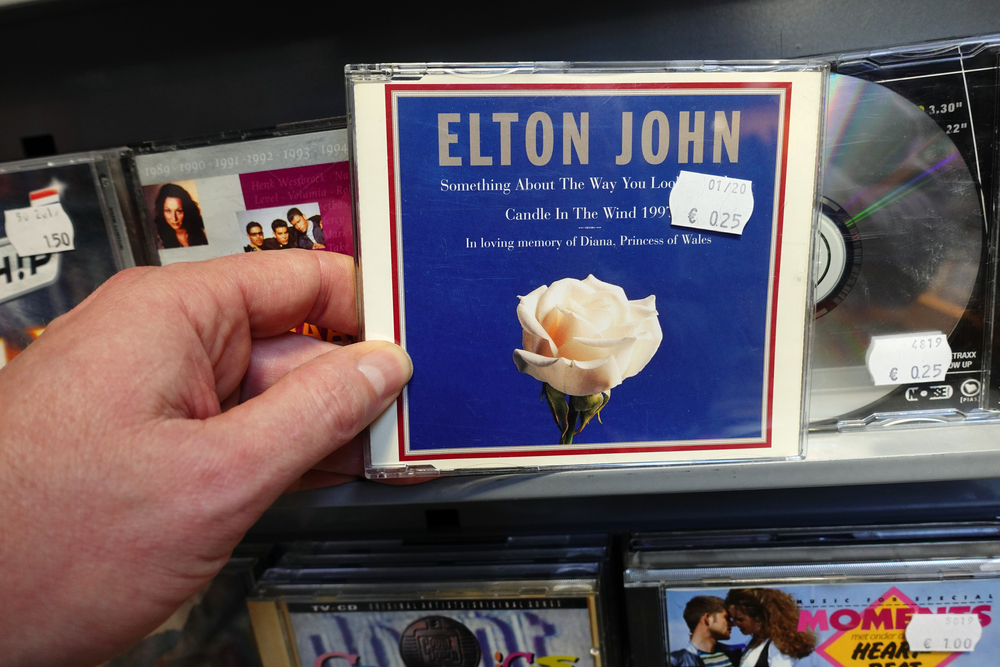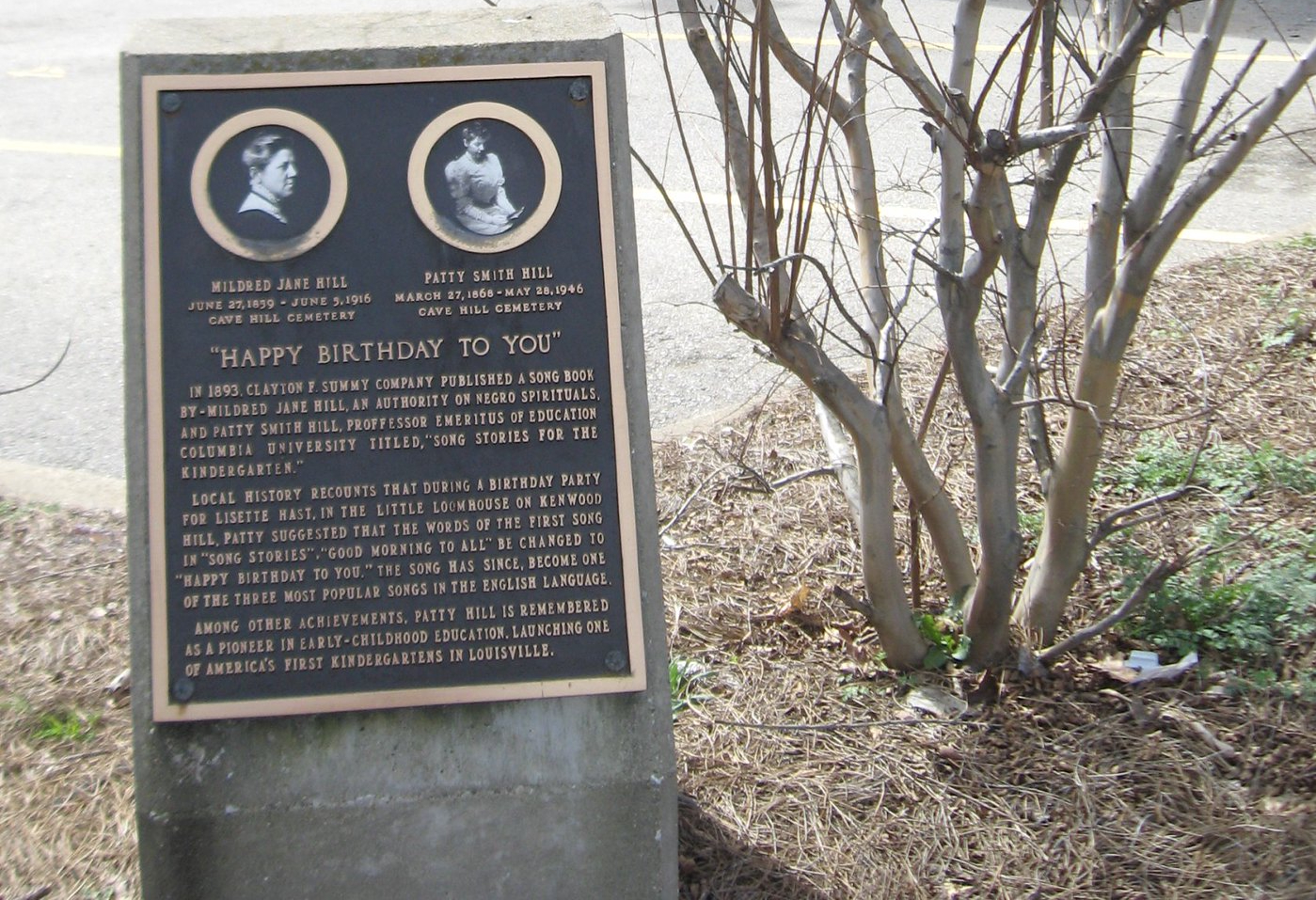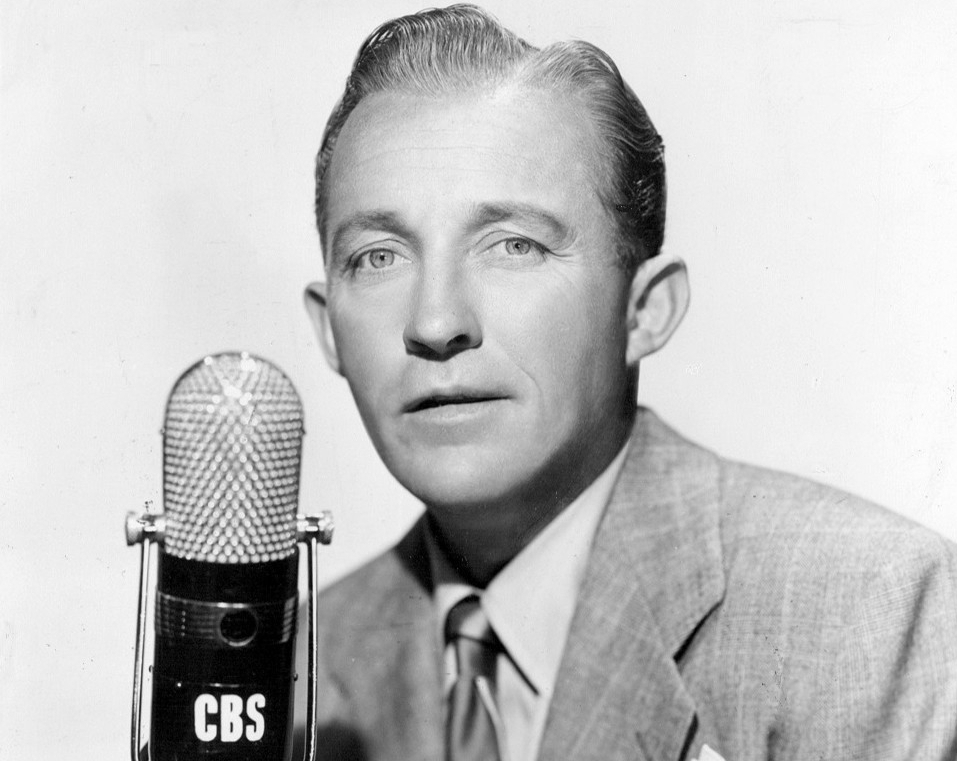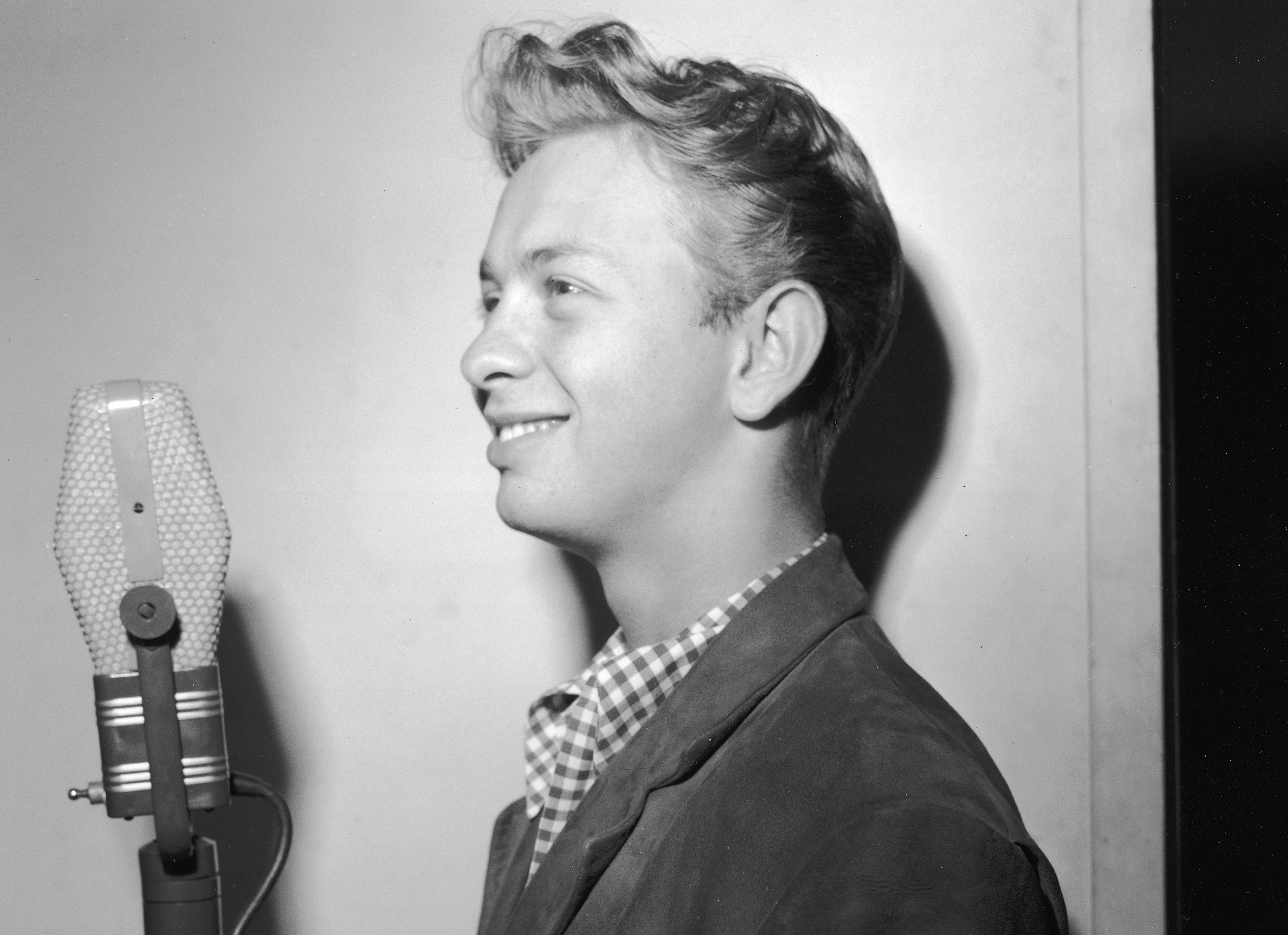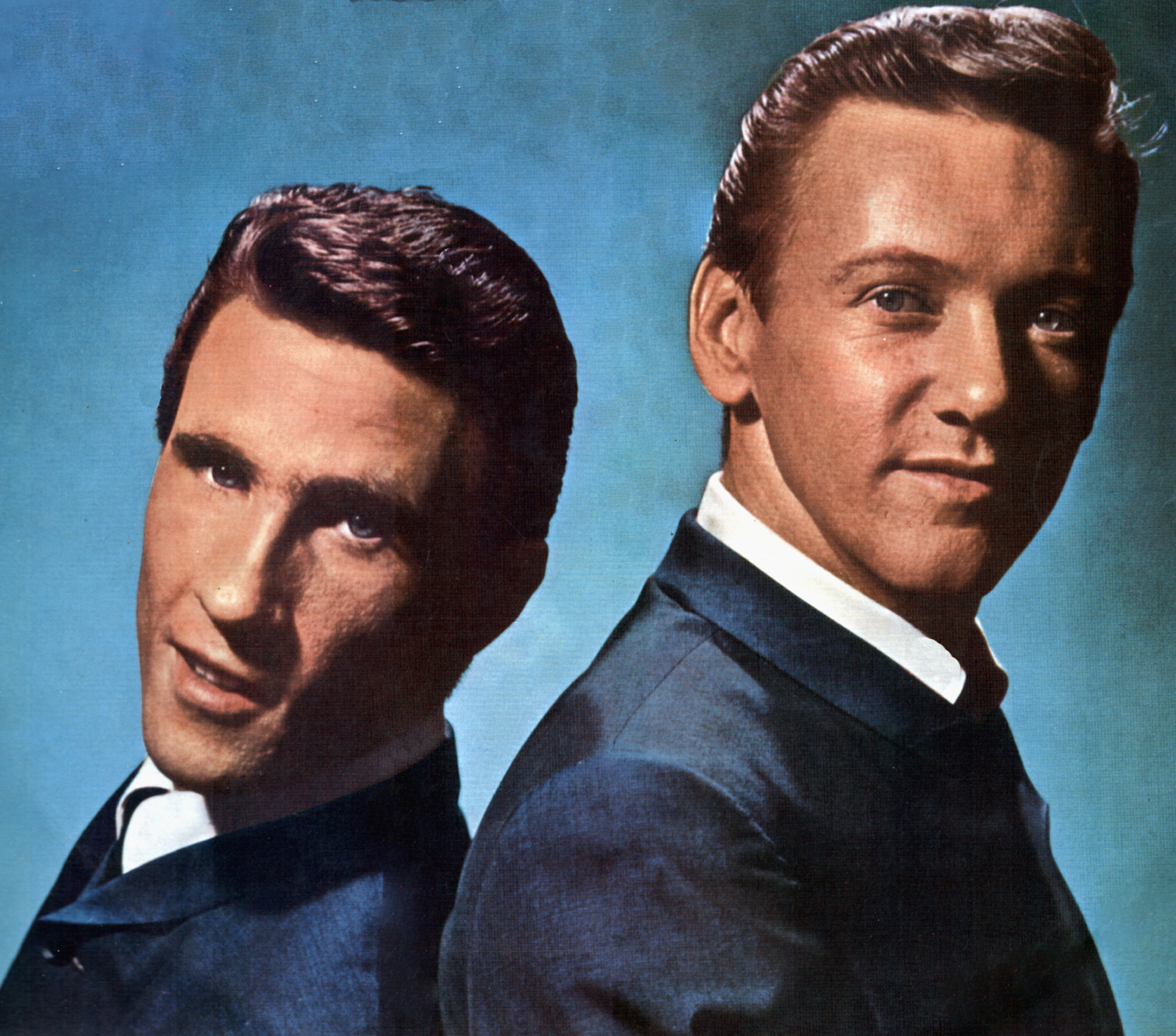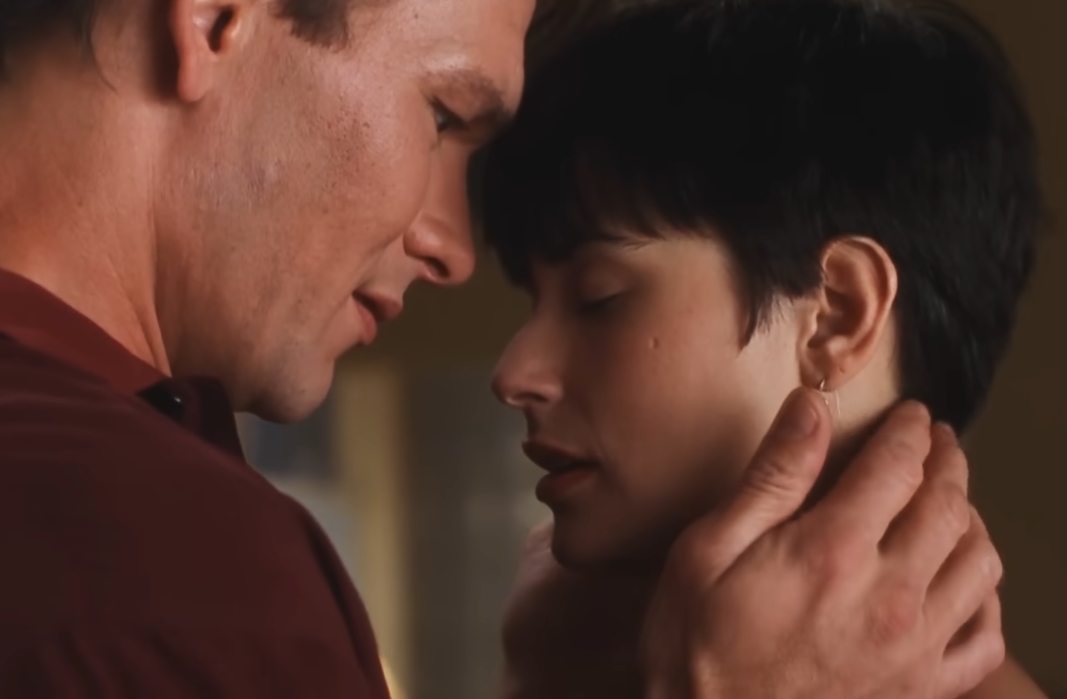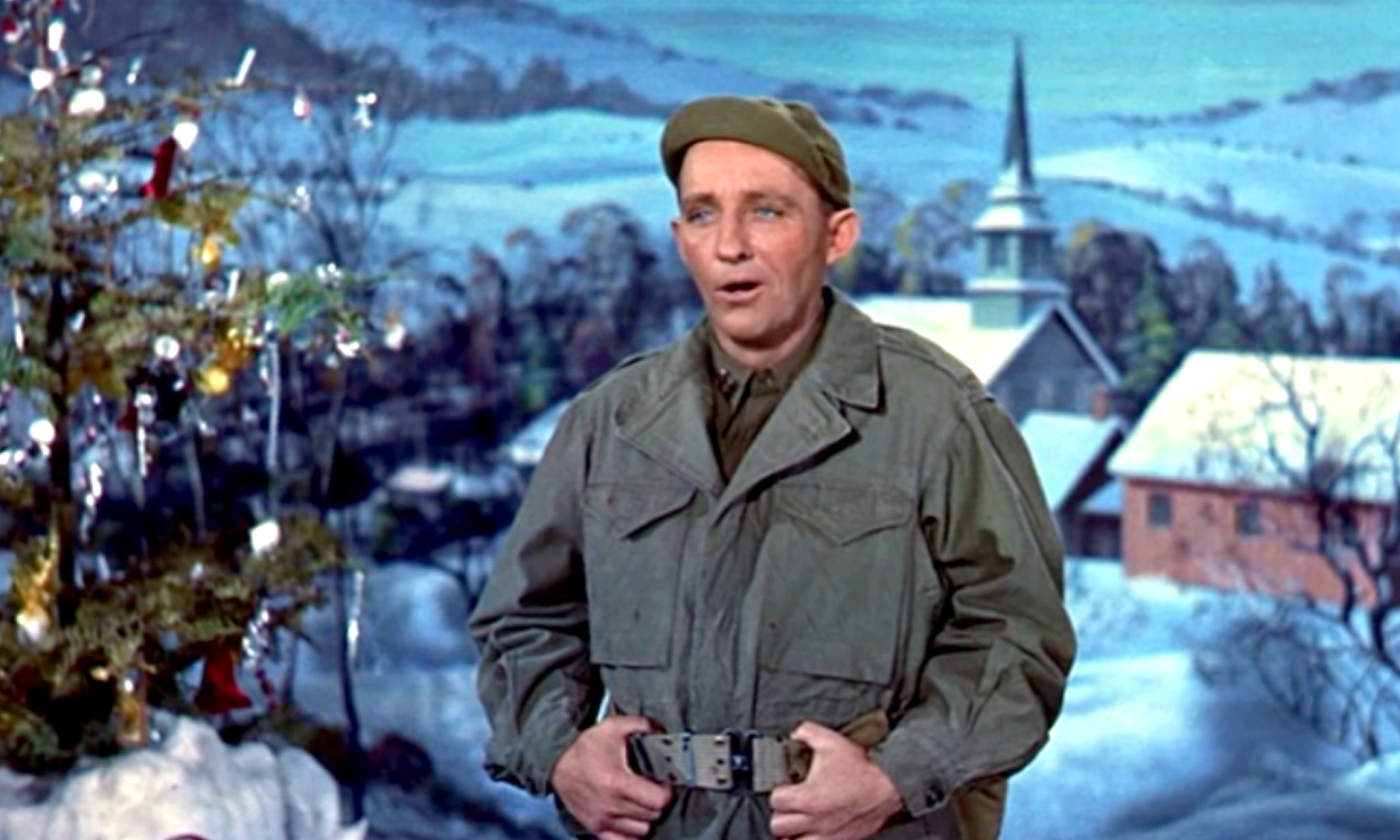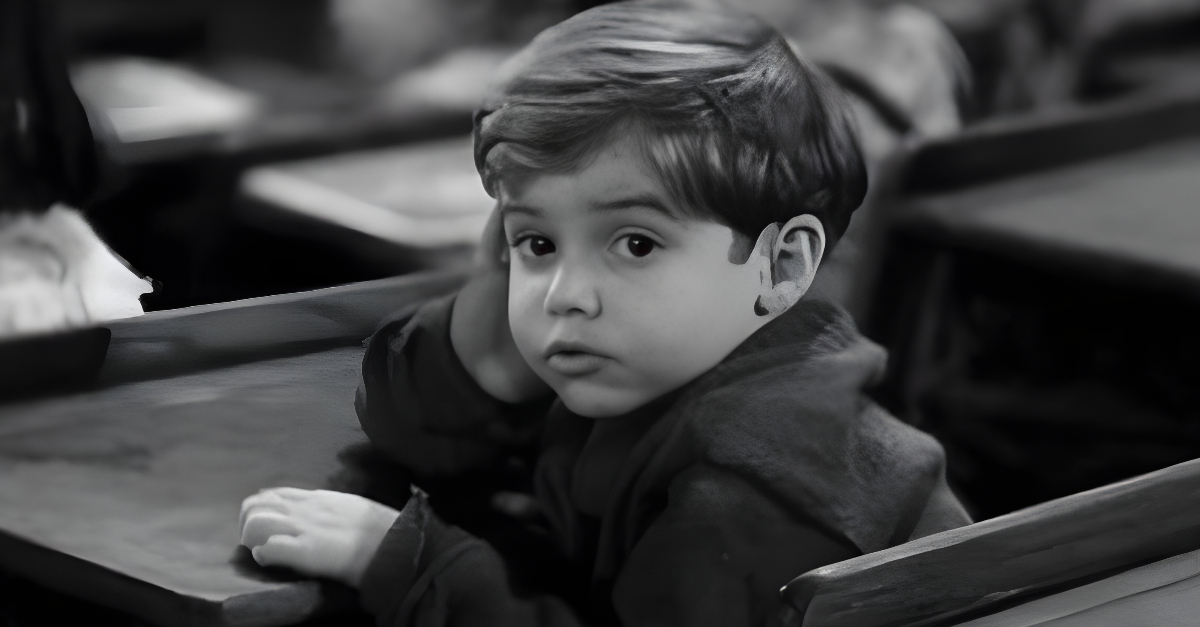The Sound Of Music Money
Songwriters get royalties no matter who plays their songs. We’ll look at some of the tunes that scored big, including some that did better as covers, or when added to TV or film, than they did when they first came out.
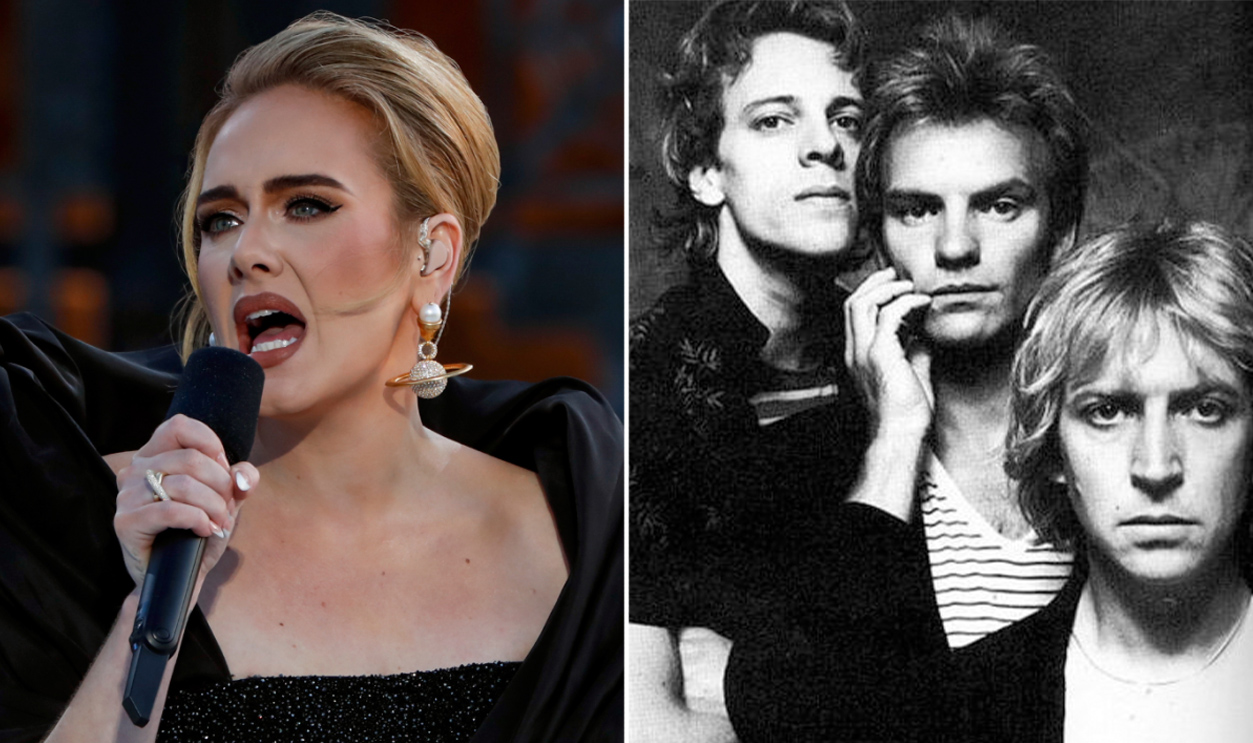
“All I Want For Christmas Is You” By Mariah Carey And Walter Afanasieff
Released in 1994, Carey’s Christmas-themed song broke new ground in a pop world not that inclined to put out a Yuletide single, let alone a whole album. This massive hit recalls Phil Spector’s Wall of Sound musical formula, but far more uptempo.
 The United States Army Band, CC BY 2.0, Wikimedia Commons
The United States Army Band, CC BY 2.0, Wikimedia Commons
“All I Want For Christmas Is You” By Mariah Carey And Walter Afanasieff
Critics loved the song, and the public was just as enthusiastic, snapping up digital versions of the tune. It’s still raking in the royalties, estimated at $100 million as of 2023—with some help from streaming—which makes it easy for listeners to return to this fave every Christmas.
“Candle In The Wind” By Elton John And Bernie Taupin
John and Taupin’s legendary partnership produced this moving tribute to Marilyn Monroe in 1973.The next year, it reached #11 on the UK charts, but the single wasn’t released in the US. In 1997, the shocking demise of another celebrity dramatically thrust the song back into the spotlight.
“Candle In The Wind” By Elton John And Bernie Taupin
After Princess Diana’s passing in August 1997, John asked Taupin to tweak the lyrics, with
“Goodbye, Norma Jean” (referring to Marilyn Monroe’s real name) becoming “Goodbye, England’s Rose”. Capturing the mood of a nation—and the world—it was a huge success.
“Despacito” By Luis Fonsi, Ramon Ayala, And Erika Ender
Puerto Rico’s Fonsi, Panama’s Erika Ender, and reggaeton performer Daddy Yankee, also from Puerto Rico, joined up to create this hit 1997 song that topped charts in 47 countries and became one of the most popular Latin songs ever. And then a Canadian came along.
“Despacito” By Luis Rodriguez, Ramon Ayala, And Erika Ender
Justin Bieber added his vocals to a remix, the first time he’d sung in Spanish, just three months later. It became his fifth #1 single. Even though the song’s title translates to “Slowly,” that hardly describes the rapid-fire success of both versions.
 Joe Bielawa, CC BY 2.0, Wikimedia Commons
Joe Bielawa, CC BY 2.0, Wikimedia Commons
“Happy Birthday” By The Hill Sisters
Said to be the song that’s generated the most royalties ever, two Kentucky sisters, Patty and Mildred Hill, failed to put their names on early sheet music or add a copyright notice. Another company copyrighted the song in 1935, and by 2010, the US fee for one performance was $700.
“Happy Birthday” By The Hill Sisters
For Warner/Chappell Music, it was the gift that kept on giving, but in 2015, a federal judge in the US ruled that the 1935 copyright applied only to a specific piano arrangement, thus freeing waiters around the nation to stop singing some awfully terrible substitutes.
“I Will Always Love You” By Dolly Parton
Parton wrote and sang I Will Always Love You to say goodbye to mentor Porter Wagoner. The song hit #1 on a Billboard country-music chart twice—in 1974 and 1982. Add plenty of covers, and you have a song that’s been broadcast 10 million times according to BMI.
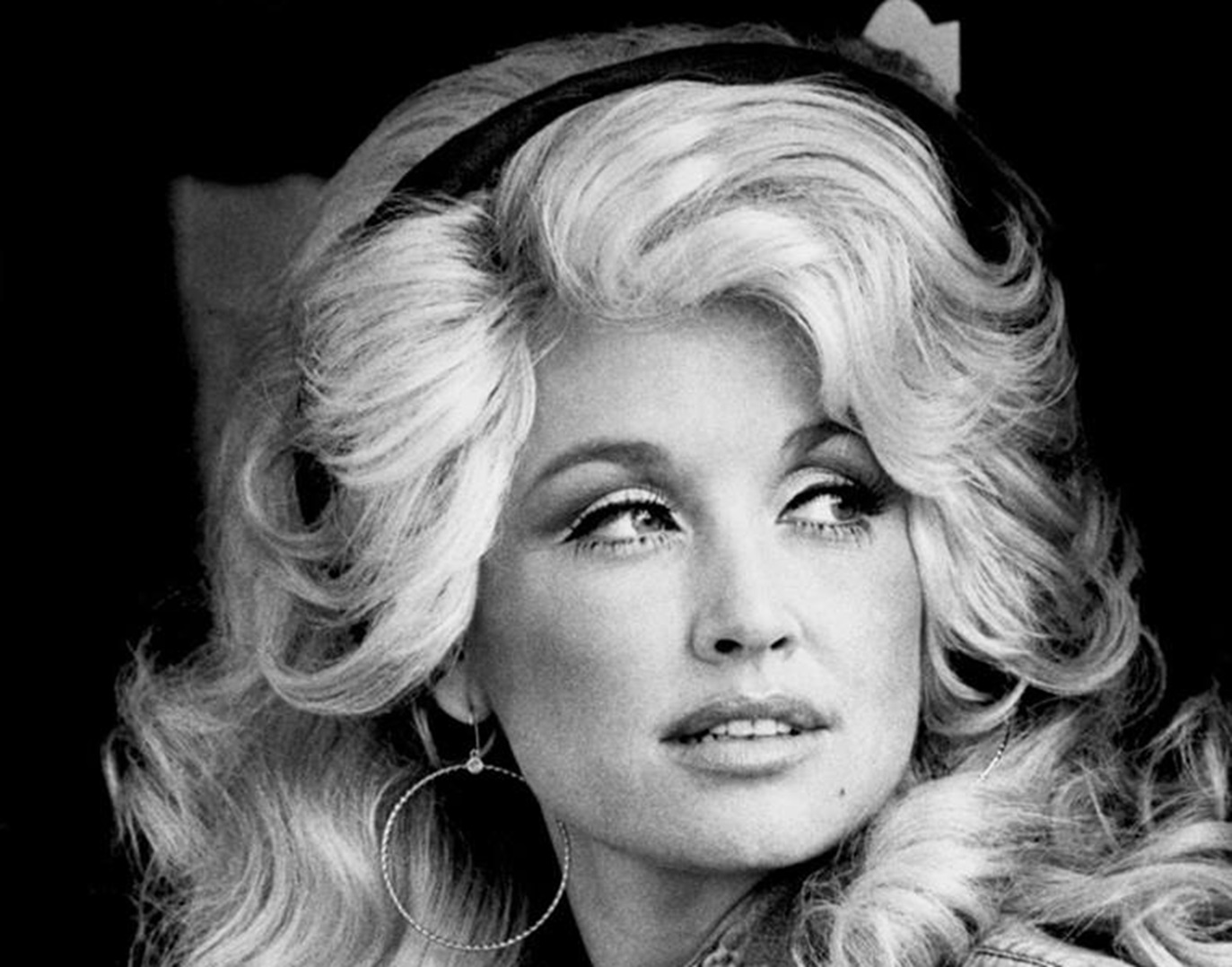 RCA Records, Wikimedia Commons
RCA Records, Wikimedia Commons
“I Will Always Love You” By Dolly Parton
The song hit stratospheric heights after Whitney Houston recorded it for The Bodyguard, Houston’s film debut, in 1992. Houston’s version sold 24 million copies around the world, and Parton warmly thanked her for boosting her songwriting royalties.
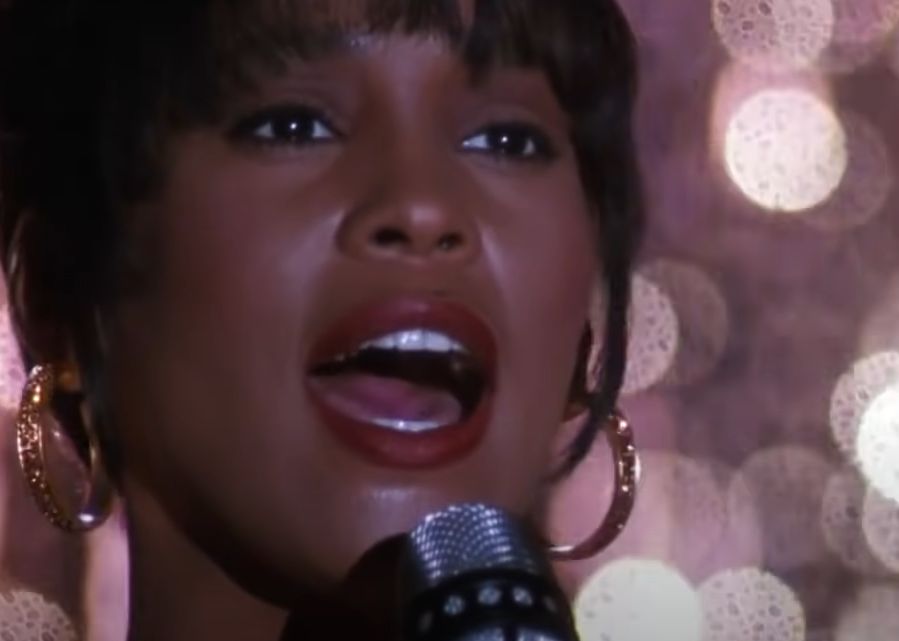 Warner Bros., The Bodyguard (1992)
Warner Bros., The Bodyguard (1992)
“I'll Be Missing You” By Puff Daddy, Sauce Monkey, Faith Evans—And Sting
Rappers Christopher “The Notorious BIG” Wallace, Puff Daddy (Sean Combs), and Sauce Monkey joined Wallace’s widow, Faith Evans, to write a memorial to him in 1997. Only problem: It heavily sampled The Police’s “Every Step You Take” without permission and reused its lyrics.
“I'll Be Missing You” By Puff Daddy, Sauce Monkey, Faith Evans—And Sting
No one asked songwriter Sting’s permission, so he sued and was awarded 100% of royalties until 2053—royalties that were helped by hitting #1 on charts around the world. It was certified three times platinum in the US, and Sting even graciously performed the song live with Combs and Evans.
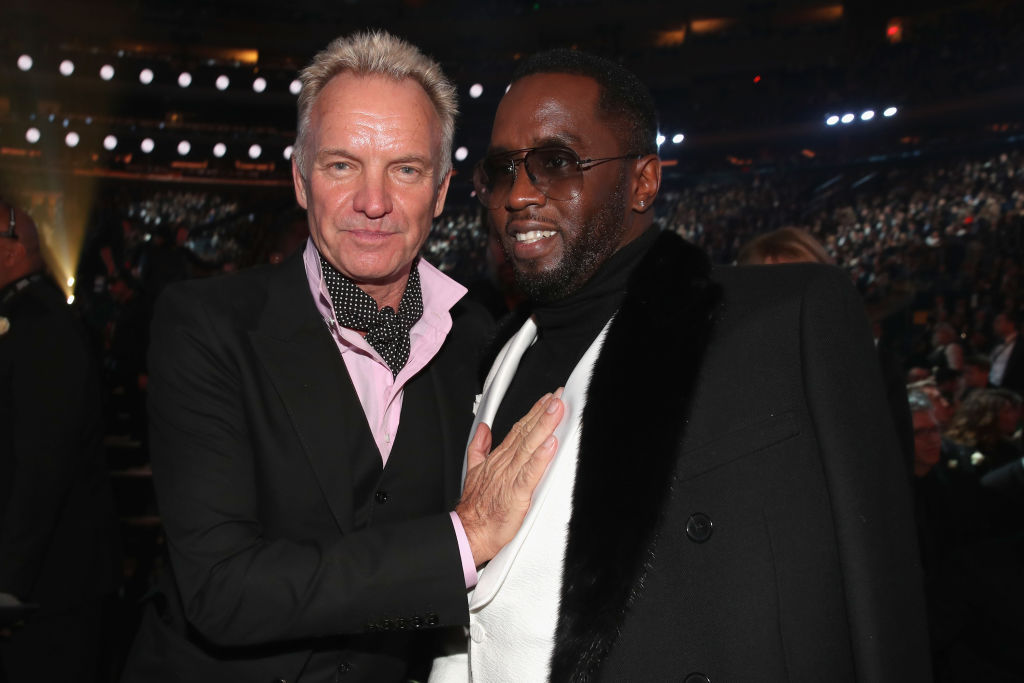 Christopher Polk, Getty Images
Christopher Polk, Getty Images
“I’ll Be There For You” By Lots Of People
This is more a tale of how to earn royalties on a song you didn’t have a lot to do with. Future hit show Friends needed a theme song after REM nixed Shiny Happy People, so Warner Bros approached The Rembrandts. But there’d be a lot of cooks in the songwriting kitchen.
“I’ll Be There For You” By Lots Of People
Friends’ musical director wrote the tune, and the co-creators of the show joined a professional lyricist to write most of the words. Bandmates Phil Solem and Danny Wilde did make some suggestions, for short and long versions, and Wilde said royalties sent his two kids to college.
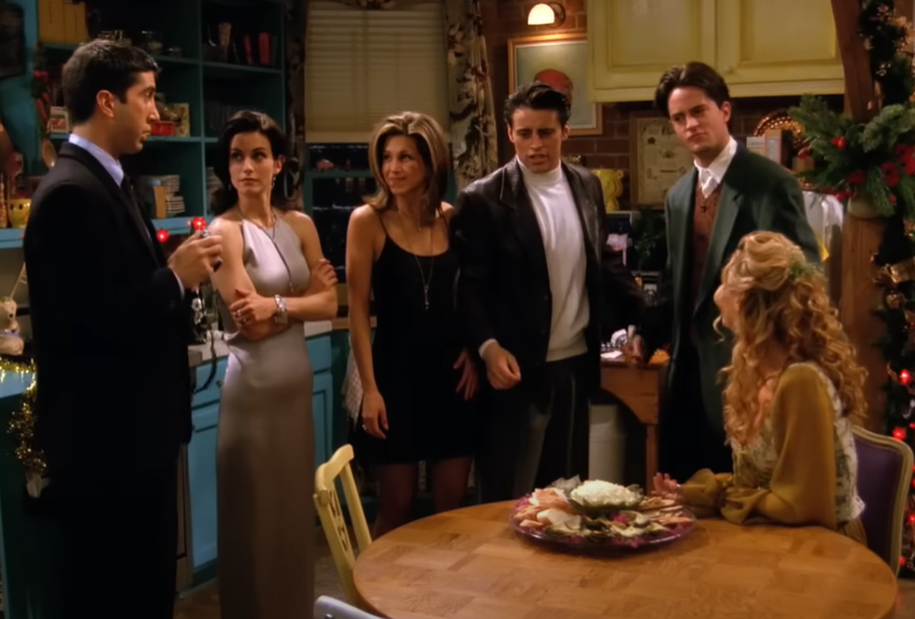 Warner Bros., Friends (1994 - 2004)
Warner Bros., Friends (1994 - 2004)
“In The Summertime” By Raymond Dorset
In The Summertime was British band Mungo Jerry’s first single, released in 1970, and became one of history’s most popular singles, with 30 million copies sold. Lead singer Dorset said he wrote the song in 10 minutes.
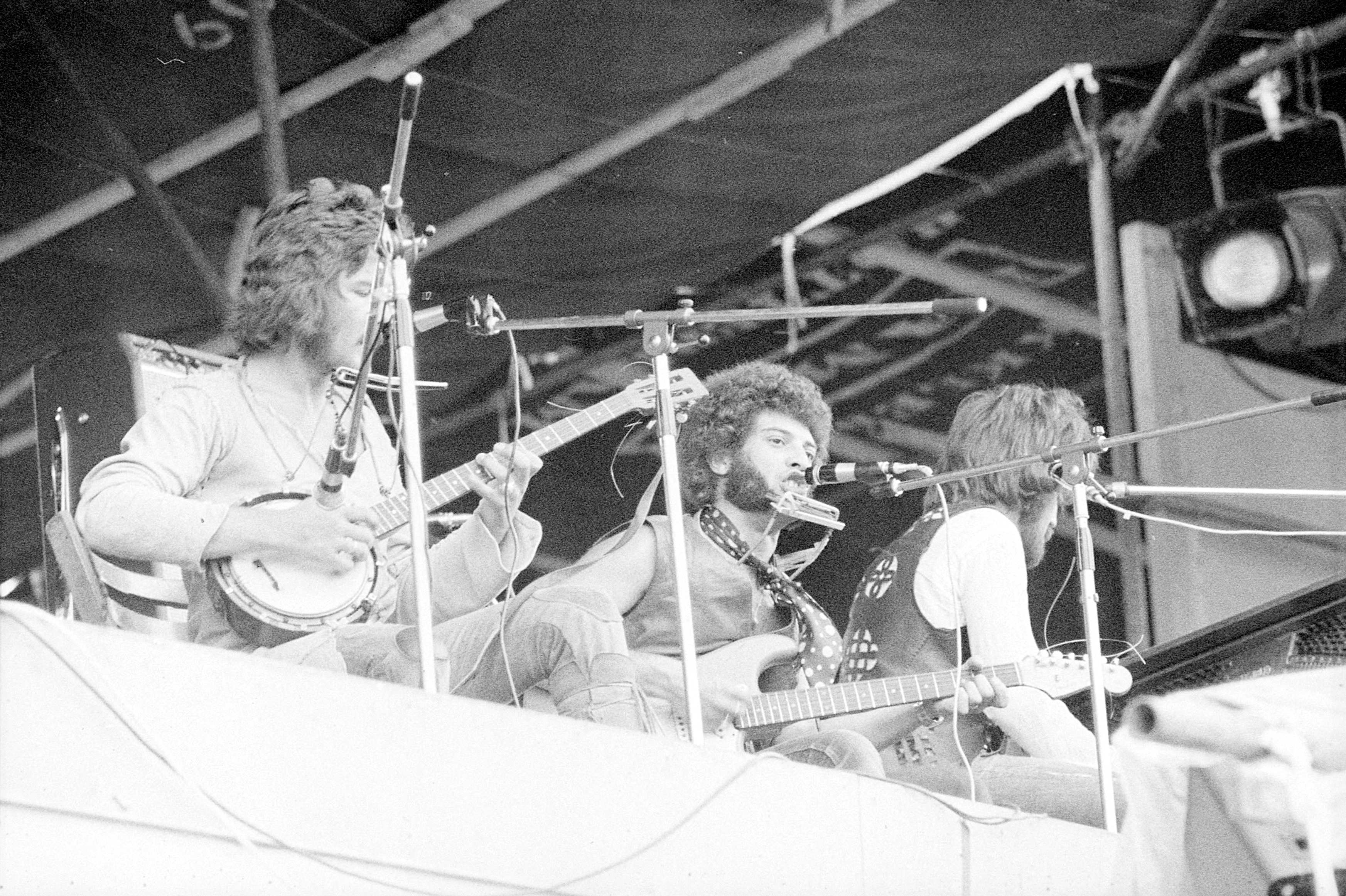 Fotopersbureau De Boer, Wikimedia Commons
Fotopersbureau De Boer, Wikimedia Commons
“In The Summertime” By Raymond Dorset
Dorset later said he was naive about the business side of music, and believed he lost perhaps millions of pounds in royalties. He sued his former management company in one case, and lost another case over ownership of one of his later songs.
 Harald Bischoff, CC BY-SA 3.0, Wikimedia Commons
Harald Bischoff, CC BY-SA 3.0, Wikimedia Commons
“Oh, Pretty Woman” By Roy Orbison And Bill Dees
Released in 1964, the song marked a high point in Orbison’s career, with the single certified gold in the US and platinum in the UK. It was the last of two singles of his to reach #1 in the US. Orbison and Dees co-wrote the song after a conversation about how pretty Orbison’s wife was.
 Jack de Nijs, CC BY 4.0, Wikimedia Commons
Jack de Nijs, CC BY 4.0, Wikimedia Commons
“Oh, Pretty Woman” By Roy Orbison And Bill Dees
The success of Van Halen’s 1982 cover of Oh, Pretty Woman helped pressure Orbison’s record company to produce a full album. Orbison’s rendition showed up in Pretty Woman (1990), and in 1994, the US Supreme Court ruled hip-hop group 2 Live Crew had the right to parody the song.
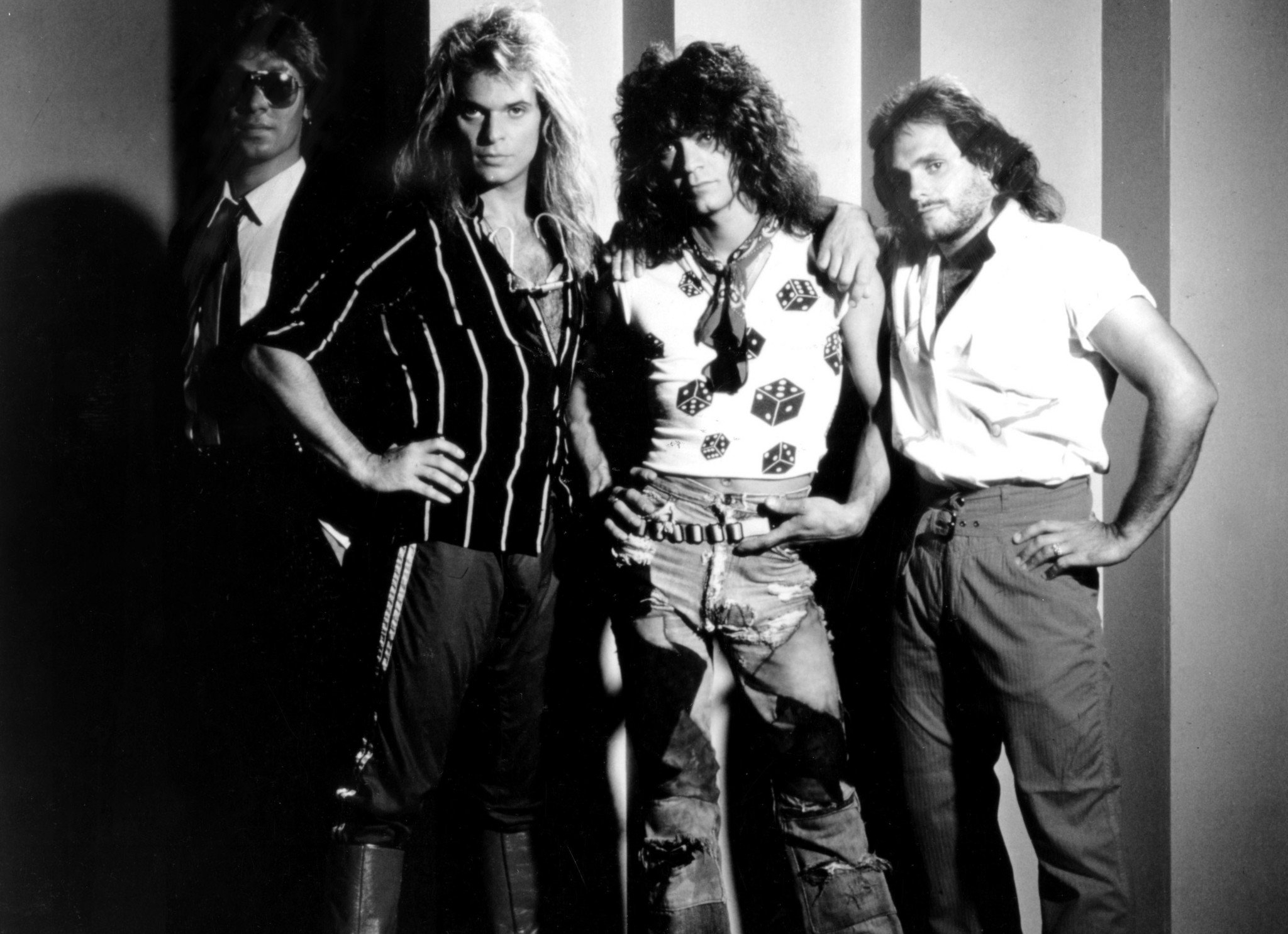 Warner Records, Wikimedia Commons
Warner Records, Wikimedia Commons
“Rolling In The Deep” By Adele Adkins And Paul Epworth
Launching Adele into superstardom in 2011, the song depicted her defiance after a break-up. Co-written with producer/songwriter Epworth in a single afternoon, Rolling In The Deep topped charts in a dozen countries and became America’s second-most popular song in digital sales.
 Robst56, CC BY-SA 2.0, Wikimedia Commons
Robst56, CC BY-SA 2.0, Wikimedia Commons
“Rolling In The Deep” By Adele Adkins And Paul Epworth
In 2012, Rolling Stone estimated Epworth had earned about $880,000 on the song’s royalties, and he’s co-written more songs for Adele. Of course, Adele keeps rolling along, with a net worth estimated to be over $200 million.
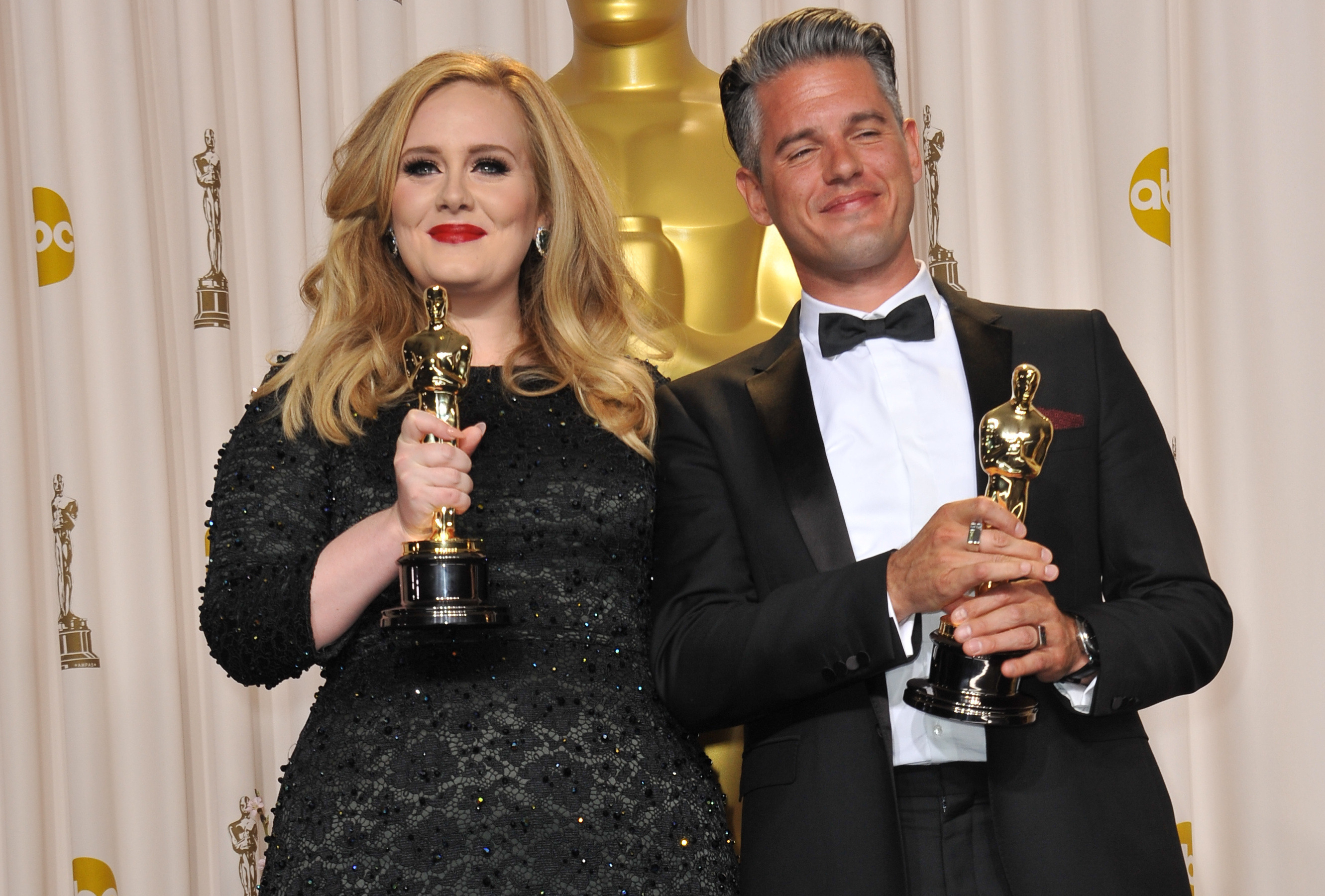 Featureflash Photo Agency, Shutterstock
Featureflash Photo Agency, Shutterstock
“Santa Claus Is Comin’ To Town” By Haven Gillespie And Fred J Coots
After Eddie Cantor performed the song on the radio in 1934, people flocked to buy sheet music and records. More than 200 covers have been made, with Bing Crosby’s version hitting #1 in 1947, and an animated TV special with the same name bringing it even greater fame in 1970.
“Santa Claus Is Comin’ To Town” By Haven Gillespie And Fred J Coots
Bruce Springsteen & the E Street Band recorded a rock version in 1975, which turned into a longtime Christmas favorite on the radio. Amidst all this success, in 2017, Gillespie’s family sued for a stake in the song’s royalties.
“Shape Of You” By Ed Sheeran, Steve Mac, And Johnny McDaid
In this 2017 song, Sheeran is looking for love in a bar filled with marimba beats. By the end of 2018, it was the first song to hit 2 million streams on Spotify, and had sold 41 million copies worldwide. Though he wrote it, Sheeran had other performers in mind, but his record company prevailed.
 Miguel Angel Lopez Rojas, Shutterstock
Miguel Angel Lopez Rojas, Shutterstock
“Shape Of You” By Ed Sheeran, Steve Mac, And Johnny McDaid
In the UK, two musicians sued Sheeran, alleging copyright infringement. The judge found Sheeran not guilty, and the singer reiterated that pop music had only 12 notes and very few popular chords. At the trial, we learned the three songwriters earned £5 million every year from royalties.
 Harald Krichel, CC BY-SA 3.0, Wikimedia Commons
Harald Krichel, CC BY-SA 3.0, Wikimedia Commons
“Stand By Me” By Ben E King, Jerry Leiber, And Mike Stoller
Co-writer King’s 1961 performance reached #1 on R&B charts and became a Top 10 hit. Many critics consider John Lennon’s 1975 version the best of the song’s many covers, and it reached #20 on the US Hot 100 list.
 Miniacipedia, Wikimedia Commons
Miniacipedia, Wikimedia Commons
“Stand By Me” By Ben E King, Jerry Leiber, And Mike Stoller
Stand By Me reached #4 in the US charts in 1961, and #9 in 1986, when the song was re-released after being used in the movie Stand By Me. In 1999, BMI said it was #4 on its list of top-performed songs of the 20th century, with around 7 million performances.
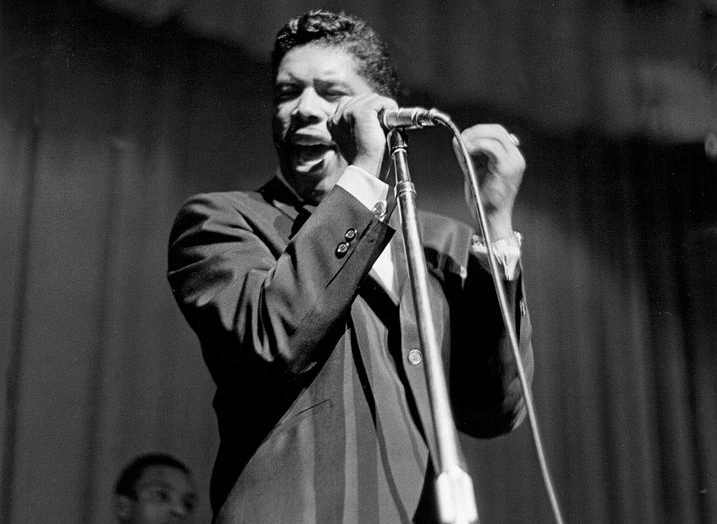 Kingmidas911, CC BY-SA 4.0, Wikimedia Commons
Kingmidas911, CC BY-SA 4.0, Wikimedia Commons
“The Christmas Song” By Mel Tormé And Bob Wells
Nat King Cole recorded various versions of this immensely popular Yuletide song, with its images of roasting chestnuts—the first time in 1946. Tormé wrote the tune and co-wrote the lyrics during a very hot summer in 1945 to try to keep his mind off the heat.
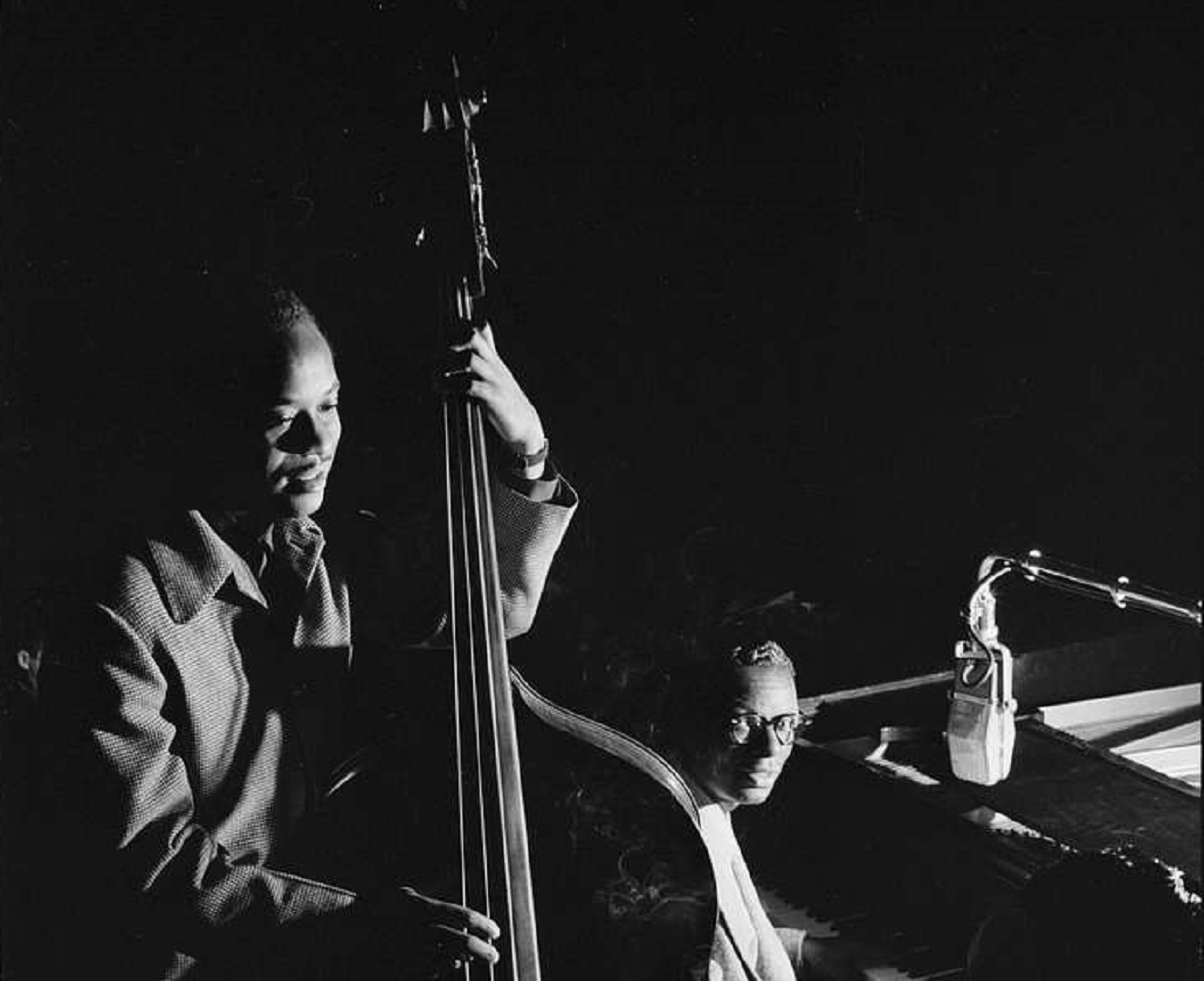 Library of Congress, Wikimedia Commons
Library of Congress, Wikimedia Commons
“The Christmas Song” By Mel Tormé And Bob Wells
Tormé himself recorded a number of versions, as did Bing Crosby. Dozens of covers have helped make this the most-performed Christmas song of all time. Meanwhile, it took 62 years, but a version of the song finally made an appearance on the US Top 10 in 2023.
“Unchained Melody” By Alex North And Hy Zaret
Originally written for an obscure prison film, Unchained (1955), the definitive performance had to wait for The Righteous Brothers 10 years later, with Bobby Hatfield taking the solo after a coin toss with fellow singer Bill Medley.
“Unchained Melody” By Alex North And Hy Zaret
Some 670 artists have made 1,500 recordings of the song, producing global royalties estimated to total £18 million by 2012, making it the fifth “richest song”. Starting off in a movie, the song’s popularity was boosted by its use in another movie, the blockbuster Ghost (1990).
“White Christmas” By Irving Berlin
Bing Crosby dreams of a white Christmas in this song written by a Jewish immigrant. Some 50 million physical copies of his 1942/1947 versions have been sold over the years, making it the best-selling single of all time, with twice that many sold when you count all the covers.
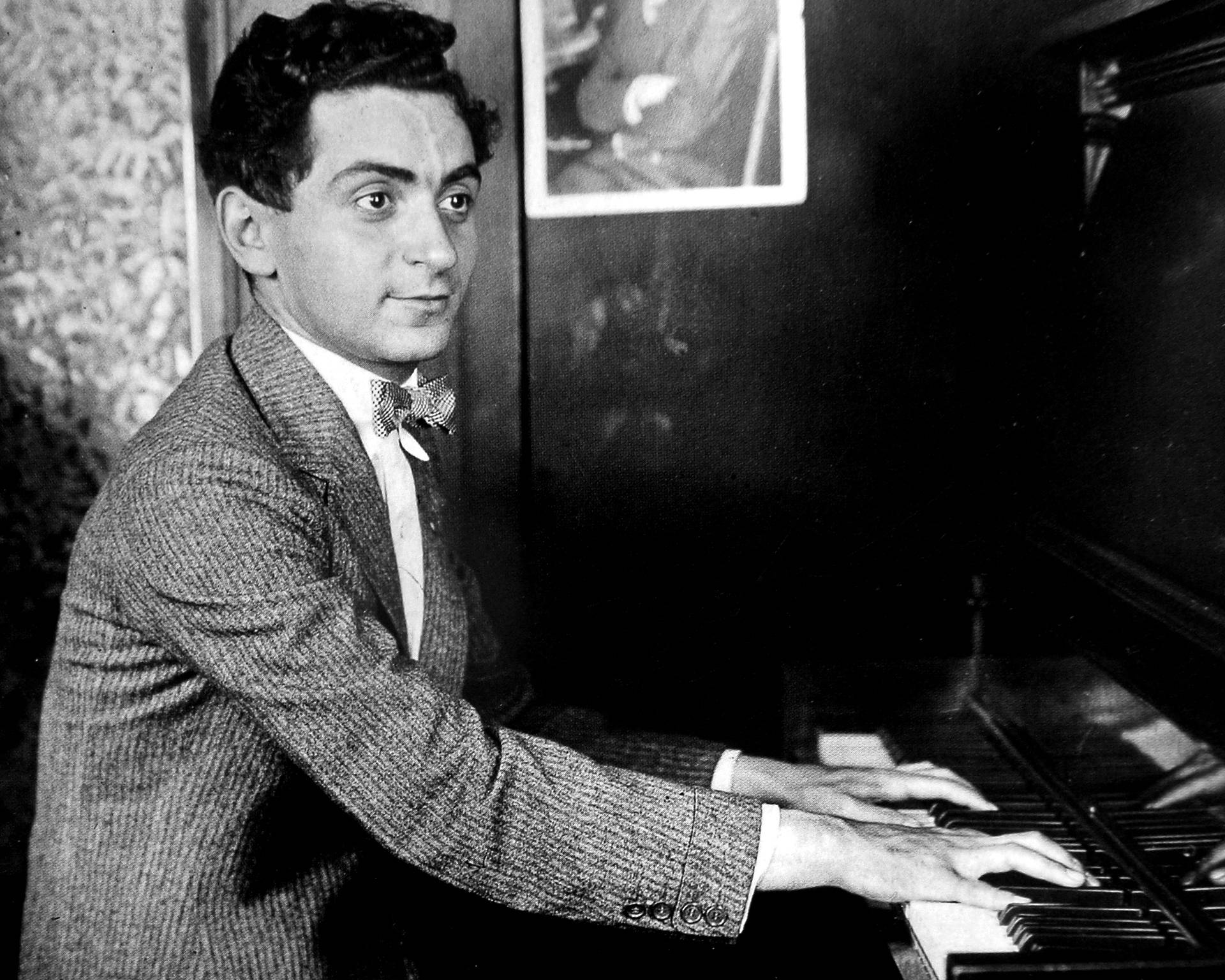 Life magazine images, Wikimedia Commons
Life magazine images, Wikimedia Commons
“White Christmas” By Irving Berlin
Crosby first sang White Christmas in the movie Holiday Inn (1942), then in White Christmas (1954), adding to its popularity. Covers are numerous, including those by the cast of Glee and Michael Bublé, but the song is forever associated with crooner Crosby.
“Yesterday” By John Lennon And Paul McCartney
In 1965, McCartney sang and played his guitar, backed by a string quartet, in this song he’d written, but credited—as was their practice—to both him and bandmate Lennon. Some 2,200 covers had been recorded by 1999, and had accumulated £20 million in royalties by 2012.
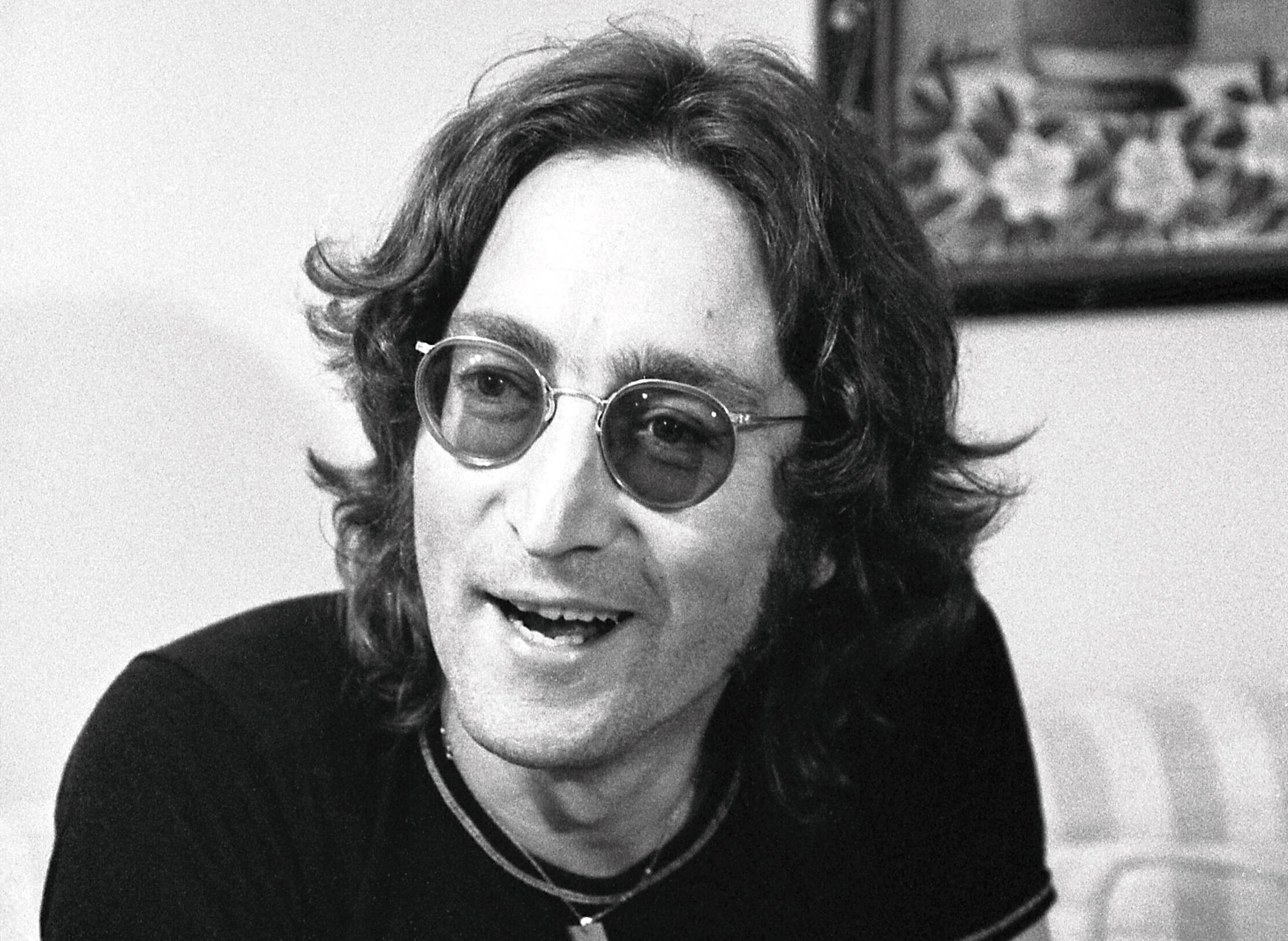 Tony Barnard, CC BY 4.0, Wikimedia Commons
Tony Barnard, CC BY 4.0, Wikimedia Commons
“Yesterday” By John Lennon And Paul McCartney
The other members of The Beatles, who didn’t appear in the track, felt this melancholic ballad was out of character for the band, so they refused to release the single in the UK. Much later, in 1976, the belated single hit #8 in the charts. McCartney has said the tune came to him in a dream.
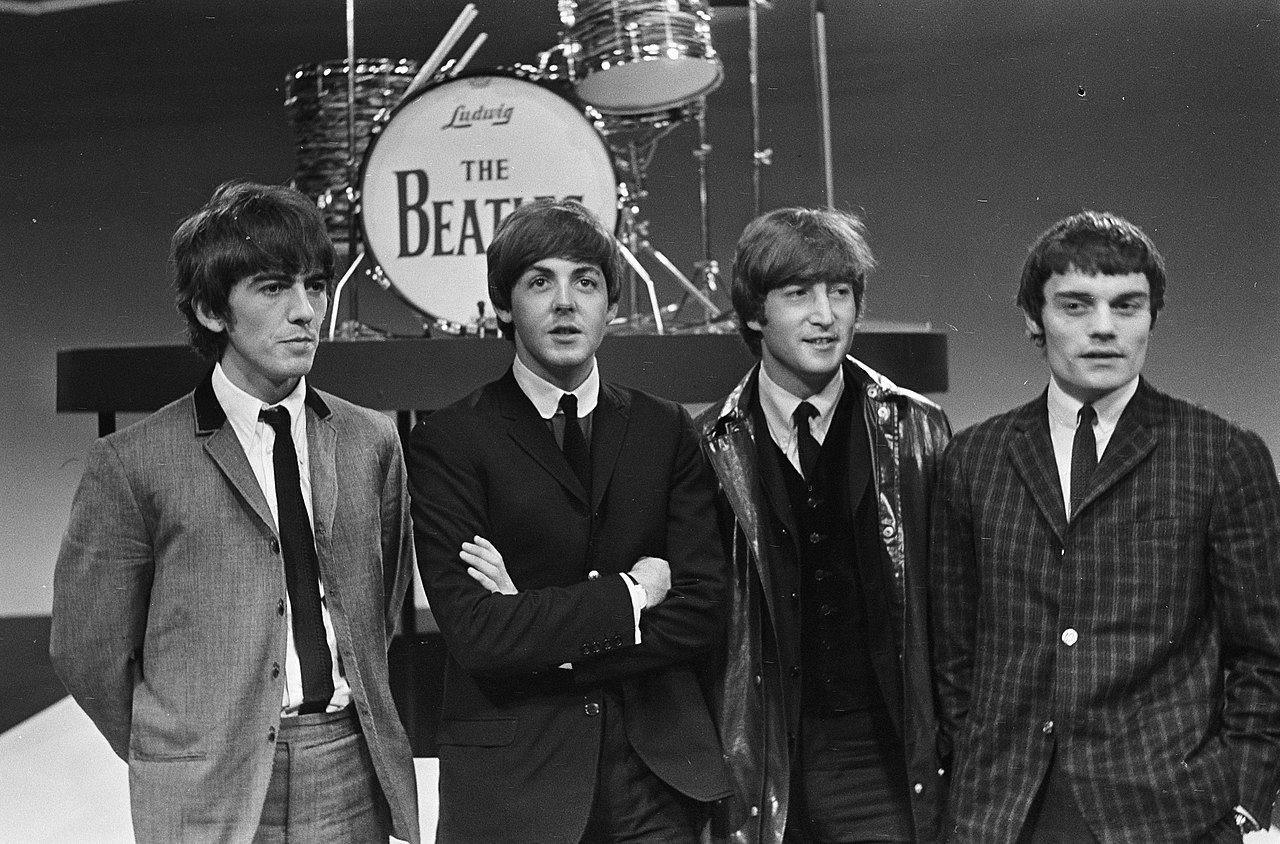 Eric Koch, CC0, Wikimedia Commons
Eric Koch, CC0, Wikimedia Commons
“You’ve Lost That Lovin’ Feeling” By Barry Mann, Cynthia Weil, And Phil Spector
Spector’s Wall Of Sound hit new heights in this hit single written for “blue-eyed soul” singers The Righteous Brothers. BMI said it was the most-played song on TV and radio during the 20th century, losing only in 2011 to The Police’s “Every Breath You Take”.
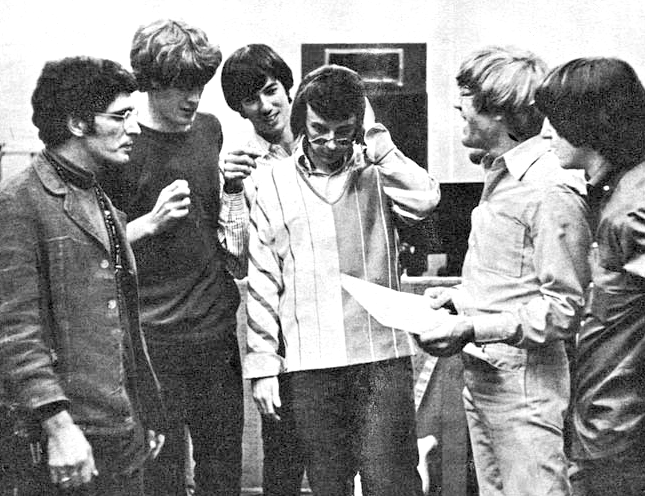 Robert W. Young, Wikimedia Commons
Robert W. Young, Wikimedia Commons
“You’ve Lost That Lovin’ Feeling” By Barry Mann, Cynthia Weil, And Phil Spector
In 2012, the song was said to be #3 for top song royalties. Appearing in Top Gun (1986) helped cement its popularity. Covers include Cilla Black’s, which battled the original single on the UK charts (The Righteous Brothers won), and a restrained version by Hall & Oates in 1980.
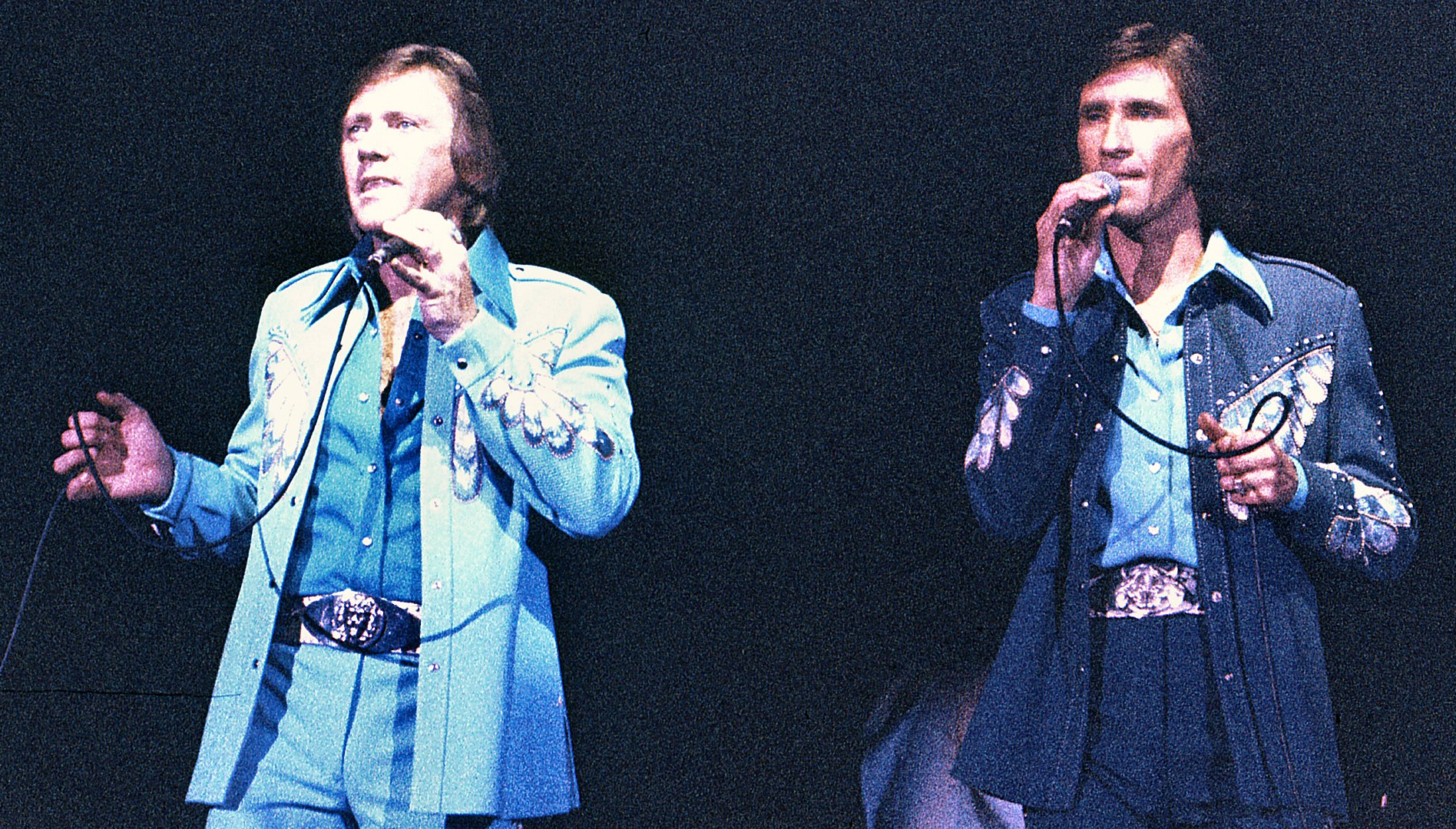 Unknown Author, Wikimedia Commons
Unknown Author, Wikimedia Commons
“Every Breath You Take” By Sting
The most popular song from The Police and lead singer Sting, Every Breath You Take was said by royalties collector BMI in 2019 to be the most played song ever on radio. In 2010, it was estimated to generate a quarter to a third of Sting’s music-publishing income.
 Beatrice Murch , CC BY 2.0 ,Wikimedia Commons
Beatrice Murch , CC BY 2.0 ,Wikimedia Commons
“Every Breath You Take” By Sting
In 2003, Sting was making $2,000 each day in royalties from the song, which none of the other band members were co-credited for. Andy Summers’ now-classic guitar riff led him to say in 2023 that the song was “going in the trash until I played on it,” and he’s still battling Sting for credit.
 Lionel Urman, CC BY-SA 3.0 , Wikimedia Commons
Lionel Urman, CC BY-SA 3.0 , Wikimedia Commons
The Royalty Road For You?
So, care to write a song that keeps on pumping out those royalties? You can read about the different kinds of royalties and how to make sure you get paid. But first you should write that hit song. There are lots of tips out there. May they offer a most happy refrain every Christmas!


